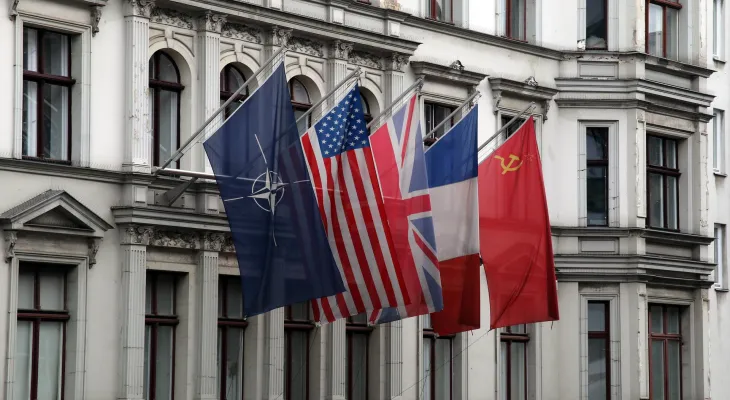Search here
Newspaper
Search here

Arab Canada News
News

Published: June 29, 2022
Madrid - Russian forces flooded into Ukraine on the morning of February 24, invading by land and sea while intensifying airstrikes on cities, in a comprehensive attack unlike anything seen in Europe since World War II.
The months that followed left thousands dead, millions displaced, led to famine and fuel shortages, and brought about radical changes in the global order.
Now NATO is ready to embark on the biggest overhaul of the alliance's deterrence forces since the Cold War at the leaders' summit in Spain, but Canada’s role in the new defense strategy remains uncertain.
NATO leaders, including Prime Minister Justin Trudeau, met in Madrid to attend the historic summit to discuss how to respond to the ongoing Russian invasion of Ukraine.
Meanwhile, Russia launched new attacks on civilians in the country—the latest being a missile strike on a shopping center in Kremenchuk in central Ukraine on Monday that killed at least 18 people.
NATO has steadily bolstered its presence since the first signs of a possible invasion in January, effectively showcasing its strength to deter Russia from fighting a battle with an allied state.
On the other hand, if Russia entered NATO territory, it would trigger a full-scale international war involving dozens of countries, as an attack on an allied state is considered an attack on all thirty countries.
Russian President Vladimir Putin has justified Ukraine’s aspirations to join NATO as one of the reasons for the invasion.
At the G7 summit in Germany, Chancellor Olaf Scholz described the fine lines leaders must walk.
Scholz said in remarks to the media during a tour with Trudeau on Monday, “We are making tough decisions.”
He added, “We are also cautious that we will help Ukraine as much as possible, but we also avoid a major conflict between Russia and NATO.”
NATO Secretary General Jens Stoltenberg pointed out that more troops are needed now and that a heightened state of readiness will be necessary to keep Russia in check.
Notably, Canada's most significant contribution to the front against Russia is in Latvia, a Baltic state along Russia’s western border, where Canada has led a battle group of 2,000 soldiers since 2017.
Similar units led by Germany, Britain, and the United States are deployed along the southern coast of the Baltic Sea.
After Russia's invasion of Ukraine, NATO members agreed to create four more battle groups in Bulgaria, Hungary, Romania, and Slovakia, effectively expanding the alliance’s eastern front to the Black Sea.
Earlier this week, Stoltenberg said the number of troops in those battle groups will double to between 3,000 and 5,000.
The alliance is also heavily working to increase the number of troops ready to respond quickly in case of a large-scale war from 40,000 to 300,000.
The question is whether Canada will contribute these troops and the necessary funds to keep them ready to take potential action.
David Perry, a defense and foreign policy analyst at the Canadian Global Affairs Institute, said, "Certainly, the alliance is looking to make some concrete promises about increasing actual capabilities, and we will be at a higher readiness to develop plans and support the alliance."
Trudeau, for his part, said at a press conference at the conclusion of the G7 summit in Germany on Tuesday, "We, like others, are developing plans to be able to expand quickly."
However, Canada is not currently meeting its promise to NATO to allocate 2 percent of its GDP to military defense.
Members of the 30-member military alliance agreed to the target in 2014.
A report by Stoltenberg estimates that Canadian defense spending will instead decline as a share of GDP to 1.27 percent this year, down from 1.32 percent last year and 1.42 percent in 2020.
Robert Baines from the NATO Association of Canada said leaders must also discuss an exit strategy from the war.
He added, “Well, we are with Ukraine as long as Ukraine needs us." But there is no exit strategy, and that always presents a challenge.”
The summit will also welcome potential new partners in Europe and Asia. Delegations from Sweden and Finland, which have applied to join NATO, will attend, and Japanese Prime Minister Fumio Kishida and South Korean President Yoon Suk-yeol will be at the NATO summit this week.
Edited by: Dima Abu Khair
Comments